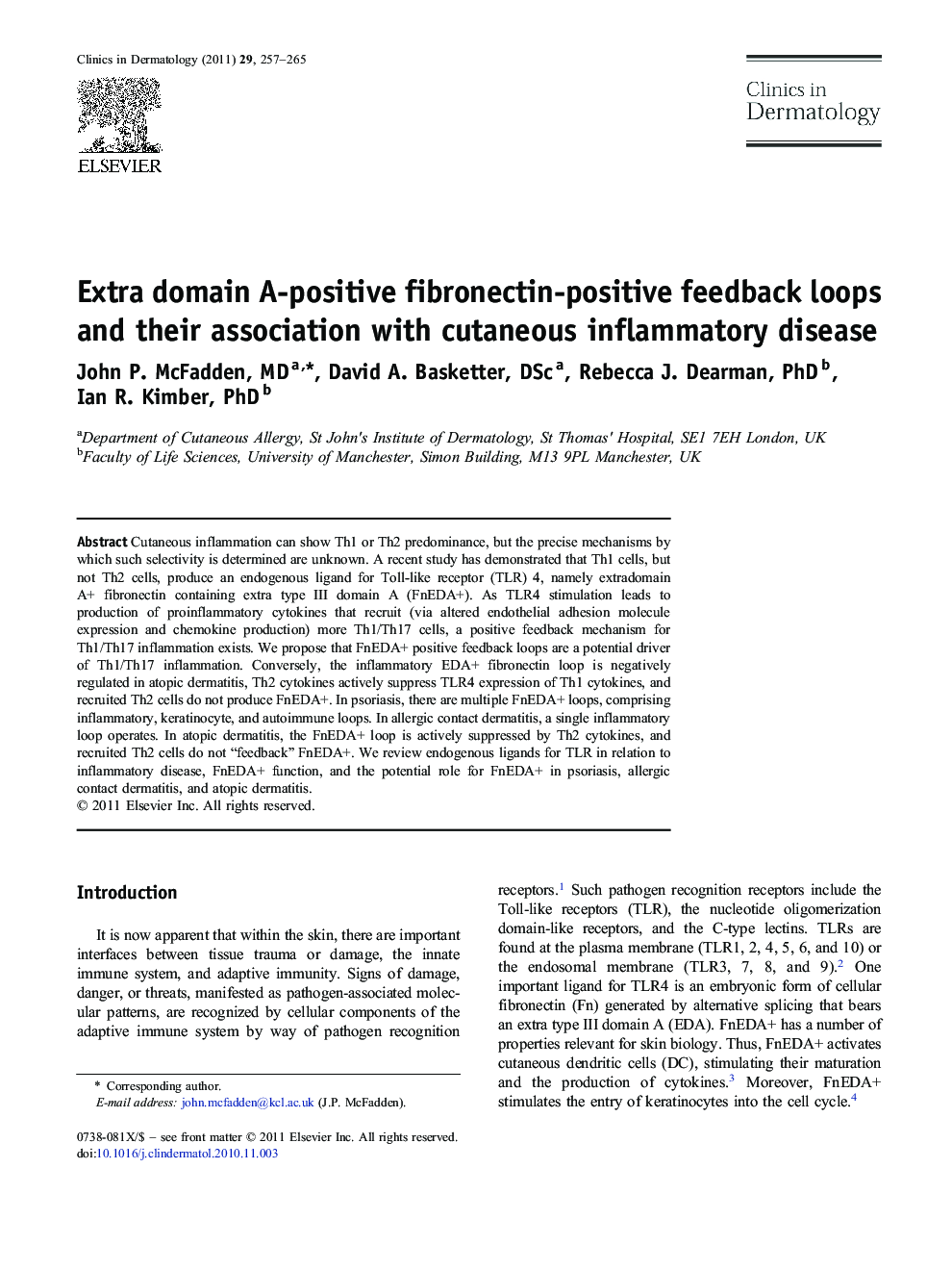| کد مقاله | کد نشریه | سال انتشار | مقاله انگلیسی | نسخه تمام متن |
|---|---|---|---|---|
| 3194416 | 1201391 | 2011 | 9 صفحه PDF | دانلود رایگان |

Cutaneous inflammation can show Th1 or Th2 predominance, but the precise mechanisms by which such selectivity is determined are unknown. A recent study has demonstrated that Th1 cells, but not Th2 cells, produce an endogenous ligand for Toll-like receptor (TLR) 4, namely extradomain A+ fibronectin containing extra type III domain A (FnEDA+). As TLR4 stimulation leads to production of proinflammatory cytokines that recruit (via altered endothelial adhesion molecule expression and chemokine production) more Th1/Th17 cells, a positive feedback mechanism for Th1/Th17 inflammation exists. We propose that FnEDA+ positive feedback loops are a potential driver of Th1/Th17 inflammation. Conversely, the inflammatory EDA+ fibronectin loop is negatively regulated in atopic dermatitis, Th2 cytokines actively suppress TLR4 expression of Th1 cytokines, and recruited Th2 cells do not produce FnEDA+. In psoriasis, there are multiple FnEDA+ loops, comprising inflammatory, keratinocyte, and autoimmune loops. In allergic contact dermatitis, a single inflammatory loop operates. In atopic dermatitis, the FnEDA+ loop is actively suppressed by Th2 cytokines, and recruited Th2 cells do not “feedback” FnEDA+. We review endogenous ligands for TLR in relation to inflammatory disease, FnEDA+ function, and the potential role for FnEDA+ in psoriasis, allergic contact dermatitis, and atopic dermatitis.
Journal: Clinics in Dermatology - Volume 29, Issue 3, May–June 2011, Pages 257–265